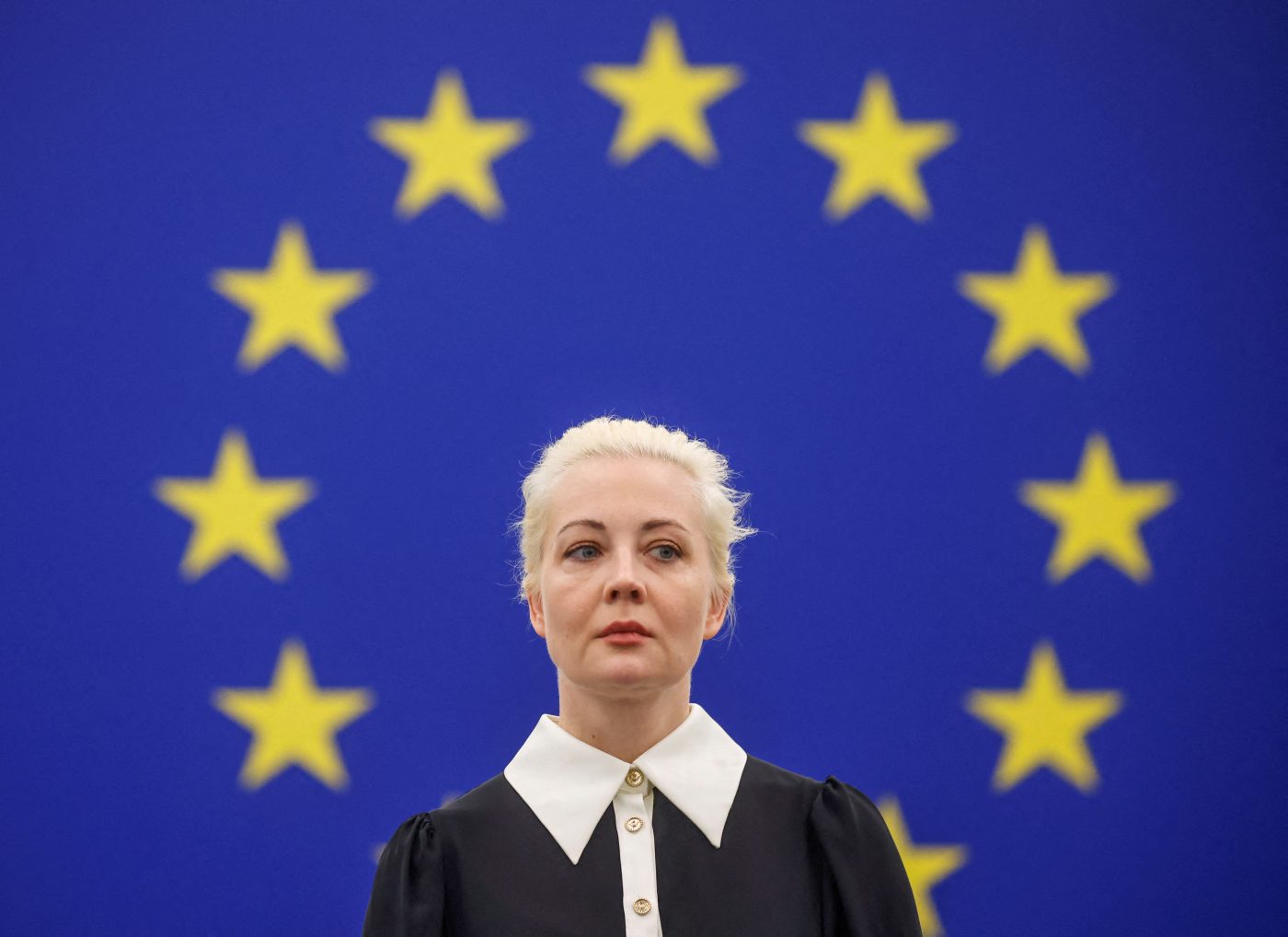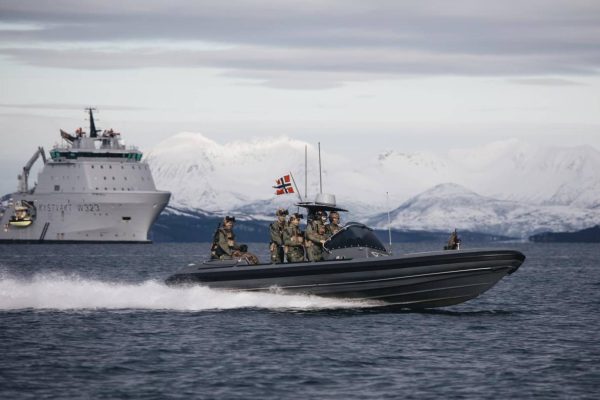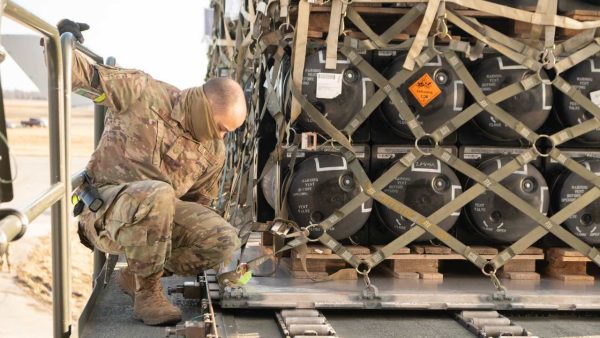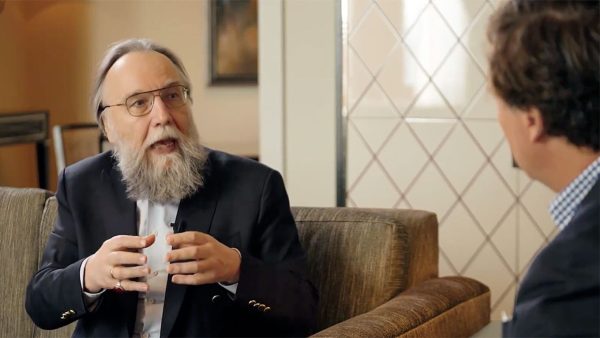Navalny had a complicated legacy in Ukraine, and the skepticism towards him is understandable. In the 2000s, he was a Russian nationalist whose response to the seizure of Crimea in 2014 sparked anger.
While he said Crimea’s annexation was a striking violation of international law, he warned Ukrainians not to delude themselves that it would be returned to Ukraine in the foreseeable future. Crimea is not “a sausage sandwich” to be passed back and forth, he said, in a phrase that remains his most quoted in Ukrainian media.
But the social media channels quoting this line tend to overlook the evolution of Navalny`s views over the past two years. “What are Ukraine’s borders? The same as Russia’s — internationally recognized, defined in 1991,” he said from prison after the full-scale invasion in February 2022. “Russia should recognize these borders now.”
In his “15 Principles of a Russian Citizen Who Wants the Best for the Country,” published in 2023, he said the return to Ukraine of all internationally recognized territories, including Crimea, was crucial. He maintained this anti-war stance until ultimately he died at Putin’s hands.
Considering Navalny’s change in position, the hostile reaction following his death was unwarranted. His former stance on Ukraine was harsh, but he modified it, and taunting him now risks driving a wedge between anti-war Russians and Ukraine.
His death in an Arctic prison on or around February 17 was an event which jolted tens of thousands of Russians. Muscovites risked their freedom to attend his funeral on March 1 (some have since been arrested), while thousands more protested in exile. Continued Ukrainian hostility risks turning these free-minded, anti-war Russians against Kyiv’s struggle for survival. It would be the Kremlin’s dream outcome.
After her husband’s death, Navalny`s wife, Yulia, entered the spotlight, though she was always a key figure in her partner’s work. A 2021 Vanity Fair article described their relationship in this way: “Navalny, the politician, is two people: Yulia and Alexey.” Many opposition figures accept her leadership, which gives her a good chance of becoming the movement’s head.
She has had a high profile over the past month, featuring in many of the world’s most influential media, speaking at the Munich Security Conference hours after news of her husband’s death broke, meeting with the political leadership of the European Union (EU) and the US, and being invited to attend President Joe Biden’s State of the Union address.
Obviously, the issue of Ukraine remains difficult. The Washington Post reported that Ukrainian First Lady Olena Zelenska had been due to attend the Address, but declined because she was expected to sit near Yulia. Navalnaya turned down the offer as well, reportedly because of fatigue.
At a time when the Russian opposition has a chance to unite, even at such a terrible cost, Navalnaya might represent a real opportunity for Kyiv. The world’s focus on Ukraine has been decreasing, and there is a need to rebuild it.
Of course, it may be that for now, it is too difficult for both sides to publicly embrace. As Zelenska’s decision illustrates, there is a fear that association with almost any Russian would offend a nation at war, and which suffers casualties every day. And the Kremlin would no doubt delight to make accusations that Navalnaya was betraying her country in time of war.
But that doesn’t mean that Ukraine should shun the Russian opposition. There are Russians giving their freedom in the struggle against Putin’s corrupt regime. They are not enemies of Ukraine. They too face the brutality and mistreatment of the despot in the Kremlin, even if their suffering is on a different scale to that of Ukrainians.
Having the Russian opposition as allies would assist Ukraine. It would help to concentrate attention on the fight with Putin’s regime. It would emphasize that there will be a post-Putin Russia and that Ukraine simply seeks a civilized relationship (even if that’s hard to imagine when Russian forces are directing missiles at apartment blocks.) It will show the West that human rights are understood in Europe’s East and that violators are criminals, not popular heroes.
Navalnaya has stressed her desire for a free, peaceful, and prosperous Russia. It is an excellent opportunity for Ukraine to engage with the opposition, and show that it wants a fruitful dialog with Russia the moment it returns to its senses and abandons Putin’s bloody, imperialist dreams.
Mykyta Vorobiov is a Ukrainian political adviser, journalist, and political science student at Bard College Berlin. For the last two years, he has been developing articles on politics and law for CEPA, VoxEurop, JURIST, and others.
Europe’s Edge is CEPA’s online journal covering critical topics on the foreign policy docket across Europe and North America. All opinions are those of the author and do not necessarily represent the position or views of the institutions they represent or the Center for European Policy Analysis.





